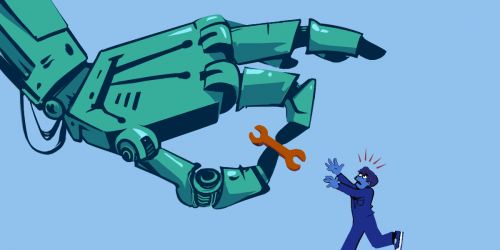America is behind on its transition to a 21st-century, fiber-connected Internet with no plan for how to fix the problem. Until today. For the first time, legislation led by Majority Whip James Clyburn would begin a national transition of everyone’s Internet connection into multi-gigabit capable fiber optics has been introduced and is likely heading towards a vote on the House floor as part of the overall COVID-19 recovery effort. After that its future remains in the hands of the Senate.
The Accessible, Affordable Internet for All Act (H.R. 7302) would create an $80 billion fiber infrastructure program run by a new Office of Internet Connectivity and Growth that would coordinate all federal infrastructure efforts with state governments. Such an ambitious program would have the United States match China’s efforts to build universal fiber with the U.S. completing its transition just a few short years after China. Without this law, the transition would take decades. This would ensure that the multi-gigabit innovations in applications and services can be created in the United States and also used by all Americans. A universal fiber program would also allow next-generation Wi-Fi and 5G to have national coverage as well as any future iterations of wireless technology. But perhaps most importantly of all, the issue of the digital divide would be solved in its entirety and properly relegated to the history books.
Key Provisions of the Legislation Explained
Fiber is a future-proofed infrastructure that is vastly superior to the current copper and cable networks available to most people. EFF’s technical analysis shows that it will continue to leapfrog past cable, wireless, and other transmission mediums. Because it can be useful for decades, sustaining older slower networks with government funds will actually cost more in the long term. While the core of the legislation is a massive fiber infrastructure program, there are several provisions worth highlighting as they all play an integral part of achieving universal, competitive, affordable broadband networks.
The bill emphasizes open-access fiber networks that would replicate the success in Utah, where people are getting a dozen options for low priced gigabit and ten-gigabit services, including in rural markets. Building these types of networks would shatter the nearly 15-year decline into the giant monopolies or duopolies that most Americans experience when trying to get high-speed Internet access. Instead, you could get Internet access from small businesses, non-profits, and even your local schools and libraries.
The bill will also free up local governments to pursue community broadband. The removal of state laws advocated by the major national ISPs that ban local communities from building their own broadband access network is long overdue. The public sector has long ago proven essential to the effort to build universal fiber as rural cooperatives, small cities, and townships are building fiber networks in areas long ago skipped by the private sector.
While it seems small, the bill fixes a long-standing problem of Internet access in the United States by updating what we mean by broadband. Today’s federal definition of broadband was established in 2015 and stands at 25 megabits per second download and 3 megabits per second upload. This 25/3 standard makes it appear as if there are more broadband options than there truly are, hiding the monopoly. And it is a standard that can’t handle what we actually need in the 21st Century—the ability to work and study at home, for example. To fix this, the bill would establish that communities lacking 25/25 broadband are “unserved” and establish a minimum standard of 100/100 megabits per second for federally funded projects. These higher metrics are what make this a fiber infrastructure bill as older legacy networks such as DSL cannot effectively deliver these speeds.
Furthermore, it makes Internet access a right during COVID-19. Key provisions of the recently-passed-by-the-House HEROES Act ensure that if you lose Internet access due to COVID-19, the government would make sure you retain access are in the bill. Given that broadband access is an essential service now more than ever, this type of emergency connectivity assistance is important during the pandemic.
A Plan Is Finally Here, but Congress Must Be Forced to Act
The big ISPs, which fail to deliver universal access but enjoy comfortable monopolies and charge you prices at 200% to 300% above competitive rates, will resist this effort. Even when it is profitable to deliver fiber, the national ISPs have chosen not to do it in exchange for short-term profits. A massive infrastructure program, the kind that helped countries like South Korea become global leaders in broadband, aren’t just desperately needed in the United States, it is a requirement. No other country on planet Earth has made progress in delivering universal fiber without an infrastructure policy of this type.
So it is on each of us to commit to contacting our Member of the House and two Senators to demand they vote for universal fiber legislation as envisioned by the Accessible, Affordable Internet for All Act. Ending the digital divide for everyone without exception should be the key piece of the economic recovery effort of Congress. The hardships and pain so many people are facing across the country due to the failures of our past telecom policies to guarantee equality in access should be the reason we pass a law to solve those problems.
We deserve universal, affordable, high-speed Internet access
Tell Congress to Vote For the Accessible, Affordable Internet for All Act














